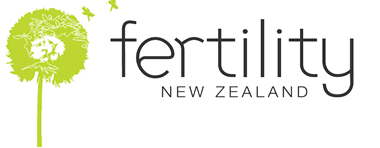Single Women
Support
The best way to decide if this path is for you is to connect with others who have already walked it. Ask questions, and share thoughts and experiences. Fertility NZ has in-person support available in Auckland and Christchurch. Get in touch with our facilitators - Rochelle (see her story below), Katherine and Kim.
- Contact Rochelle (Auckland): singlewomensupport@fertilitynz.org.nz
- Contact Kim (Christchurch): singlewomensupportchch@fertilitynz.org.nz
- Our Events Calendar has the date of the next in-person and online meetings.
- Join our private Facebook Groups: Auckland - FNZ Single Mothers by Choice and Christchurch - SMC Christchurch.
Navigating this option
Clinic counsellors are available to talk through the implications of various options and assist you with decision-making. You do not need to be a clinic patient to arrange an appointment with a clinic fertility counsellor.
An increasing number of women are choosing to become parents without a partner. Many of these women are in their mid to late 30s, or early 40s, and have not found a partner but do not wish to forego the opportunity of parenthood. There can be many losses to grieve as you perhaps change direction from anticipating parenting with a partner, to single parenthood.
What is involved
The most common, and straightforward, route to single motherhood is using donor sperm via either Intra-uterine insemination (IUI) or In-vitro fertilisation (IVF). IUI is the least invasive, and least expensive option, which involves inserting sperm into the uterus at the time of ovulation. IVF involves medications to encourage egg production, followed by extracting the egg, combining it with donor sperm and then replacing an embryo into the uterus. Embryo(s) may be frozen following the cycle.
Your sperm donor can either be already known to you, or recruited via a fertility clinic. If you are considering using a clinic donor, we recommend that you contact a clinic close to you as soon as possible, as there is usually a waitlist in place for sperm donors. Sperm donors known to you may be friends, acquaintances, or even some family members. Even if your known donor lives overseas, please speak to your fertility clinic as most times, the sperm donor’s geographic location can be accommodated in the process.
If, however, the woman has a fertility issue such as low ovarian reserve / egg number and quality, then an egg donor may also be required. This could involve an egg donor undergoing the first half of an IVF cycle, with the egg(s) then combined with donor sperm, and implanted into the prospective mother’s uterus. If donor eggs and donor sperm are required to be used in conjunction to create embryos, then approval is required from the Ethics Committee on Assisted Reproductive Technology (ECART). Donated embryos can also be an option for single women, and this also requires ECART approval. Donated embryos or donor eggs in conjunction with donor sperm, can now be used in conjunction with surrogacy if medically deemed to be the most appropriate option.
Emotional considerations
As you embark on this journey, you will need to identify who your support person (or people) are. Think carefully about who this person is as they will need to be reliable, dependable and able to be a calm anchor for you. They may accompany you to treatments and act as a sounding board.
Babies and children are very time consuming and it is especially important for single people to have some time-out factored into their lives. Look after yourself and do not be afraid to ask for help at any stage.
Being a single parent involves courage and resilience. It entails taking sole responsibility for decisions around the child. Embarking on a journey to single parenthood can feel equally nervewracking and empowering.
Legal implications
We recommend that prospective single mothers use fertility clinics. Fertility clinics offer more protection to all parties, in a medical, legal and ethical sense.
Although more expensive and time-consuming than a DIY option, the consequences of things going wrong (which is more often due to a change in circumstances or lack of support and preparation in regard to the long term implications, than ill intent), can be far reaching for yourself and, importantly, your future child. Seeking legal advice from a lawyer with related experience is also advisable.
Funding available
There is government funding available for donor conception, with the main criteria being that the recipient(s) are diagnosed as infertile.
Donor sperm treatment is funded for single women who have not become pregnant after at least 12 cycles of donor insemination, of which six cycles (privately funded), must have been conducted in a fertility clinic. Learn more about Donor Sperm.
Surrogacy is funded where the woman does not have a uterus, the chance of pregnancy is very low using her own uterus, or carrying a pregnancy would be unsafe for her health. Learn more about Surrogacy.
Wait lists are held by the clinics holding contracts for fertility treatment from District Health Boards, and are typically 12-14 months for IVF treatment.



